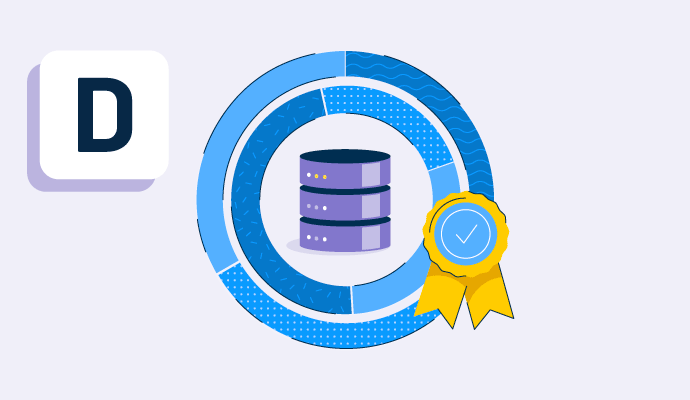
Data integrity is the overall accuracy, completeness, and consistency of data in its lifecycle. It’s a critical aspect of designing, using, and implementing any system that stores or processes data.
Data health has become a pressing issue in this era of big data, where more information is processed and stored than ever before. As a result, taking steps to protect the integrity of the gathered data is non-negotiable. Data quality tools help a lot of businesses maintain the accuracy and consistency of data.
The first step in ensuring data security is comprehending the fundamentals of data integrity and how it functions. It’s impossible to overstate the significance of data integrity in preventing data loss or a data leak.
To keep one's data safe from malicious external forces, users must first ensure that internal users handle data appropriately. Users can prevent sensitive data from ever being misclassified or stored incorrectly by implementing the appropriate data validation and error checking.
Two main types of data integrity guarantee data consistency, accuracy, and completeness in relational and hierarchical databases.
Since the risk to data integrity has grown to be so harmful to businesses and information systems, several strategic measures have been developed to reduce the risks. However, since it would be impossible to eliminate all risks simultaneously, users need to combine several different tactics and tools.
Data integrity is crucial for the sake of maintaining any business. The data's accuracy enables individuals to keep an unaltered and complete database with a continuous data flow. Massive amounts of data moving throughout businesses is undoubtedly fantastic, but it won't be useful if the data is of poor quality.
Data integrity guarantees the quality of the product or service. It ensures the security and privacy of clients – for example, medical patients and social media users.
Data integrity gives users more confidence to use online tools and applications, which promotes the growth of businesses in the digital economy. The end-to-end protection of data transmission over a medium is possible. Stored procedures make it simple to have total control over data access.
Data security and data integrity are related concepts essential to one another's accomplishment. Data integrity requires data security, which protects data from unauthorized access or corruption.

Data integrity deals with accuracy, completeness, and overall data consistency. In terms of security and legal compliance, such as GDPR compliance, data integrity also refers to data security. A set of procedures, guidelines, and standards put in place during the design stage are responsible for keeping it up to date. No matter how long it is kept or how frequently it is accessed, information stored in a database will remain accurate, complete, and trustworthy if the integrity of the data is secure.
The process of preserving digital information throughout its entire lifecycle to guard it against corruption, theft, or unauthorized access is known as data security. It covers everything, including organizations’ policies and procedures, hardware, software, storage, and user devices. Tools and technologies used in data security make it easier to see how a company uses its data.
Through techniques like data masking, encryption, and redaction of sensitive information, companies protect their data against cyber threats. Additionally, the process aids businesses in simplifying auditing procedures and adhering to data protection laws that are becoming stricter.
Learn more about encryption to maintain data integrity throughout its lifecycle effectively.
Sagar Joshi is a former content marketing specialist at G2 in India. He is an engineer with a keen interest in data analytics and cybersecurity. He writes about topics related to them. You can find him reading books, learning a new language, or playing pool in his free time.
What is electronic data capture (EDC)? Electronic data capture (EDC) is a technological...
 by Sagar Joshi
by Sagar Joshi
What is a data breach? A data breach is an incident that exposes sensitive and confidential...
 by Sagar Joshi
by Sagar Joshi
What is electronic data interchange (EDI)? Electronic data interchange (EDI) is the exchange...
 by Sagar Joshi
by Sagar Joshi
What is electronic data capture (EDC)? Electronic data capture (EDC) is a technological...
 by Sagar Joshi
by Sagar Joshi
What is a data breach? A data breach is an incident that exposes sensitive and confidential...
 by Sagar Joshi
by Sagar Joshi


